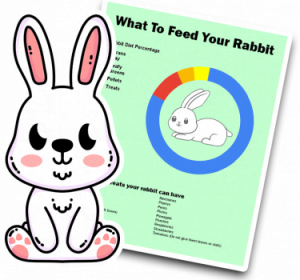
As responsible rabbit owners, it’s essential to provide them with various foods that meet their dietary needs. One common question often arises is, “Can rabbits eat collard greens?” In this comprehensive guide, we will explore the topic of feeding collard greens to rabbits and provide you with all the information you need to make informed decisions about your furry friend’s diet.
Yes, rabbits can eat collard greens! Collard greens are safe for rabbits to consume in moderation. They provide a refreshing and healthy addition to their diet. However, it’s crucial to remember that collard greens should be offered as part of a balanced meal plan, alongside other safe vegetables and fresh hay.
Before we dive into whether rabbits can eat collard greens, let’s first understand what collard greens are. Collard greens, scientifically known as Brassica oleracea, are leafy green vegetables that belong to the same family as cabbage, kale, and broccoli. These greens are highly nutritious and are a staple in many human diets.

Collard greens are packed with essential nutrients that can benefit humans and rabbits alike. They are an excellent source of vitamins A, C, and K, fiber, calcium, and manganese. These nutrients contribute to maintaining a healthy immune system, promoting proper digestion, and supporting bone health.
| Nutrient | Amount (Per 1 cup, chopped, 36g) | % Daily Value |
|---|---|---|
| Calories | 11 | – |
| Total Fat | 0.2 g | 0% |
| Saturated Fat | 0 g | 0% |
| Cholesterol | 0 mg | 0% |
| Sodium | 6 mg | 0% |
| Potassium | 77 mg | 2% |
| Total Carbohydrate | 2 g | 0% |
| Dietary Fiber | 1.4 g | 5% |
| Sugar | 0.2 g | – |
| Protein | 1.1 g | 2% |
| Vitamin C | – | 21% |
| Calcium | – | 8% |
| Iron | – | 1% |
| Vitamin D | – | 0% |
| Vitamin B6 | – | 5% |
| Cobalamin | – | 0% |
| Magnesium | – | 2% |
Including collard greens in your rabbit’s diet can offer several benefits. Here are some advantages of feeding collard greens to your furry friend:
When it comes to feeding collard greens to rabbits, moderation is key. It’s important to offer collard greens in appropriate portion sizes to prevent digestive upset.
A general guideline is to provide approximately one cup of collard greens per two pounds of your rabbit’s body weight. However, it’s crucial to consider your rabbit’s tolerance and adjust the portion accordingly.
Collard greens can be included in your rabbit’s diet several times a week. Rotating the greens, you offer is best to ensure a diverse nutrient intake. Remember to introduce new foods gradually, monitoring your rabbit for adverse reactions.
In addition to collard greens, rabbits can enjoy a variety of other safe vegetables. Here is a list of rabbit-friendly greens:
Each vegetable has unique nutritional benefits and can be included in your rabbit’s diet to provide a well-rounded meal plan.
While rabbits can enjoy a wide range of vegetables, certain greens are unsafe to consume. You must be aware of these and avoid feeding them to your furry friend. Here are some vegetables that are harmful to rabbits:
These vegetables can cause digestive issues, toxicity, or other health problems in rabbits. It’s crucial to keep them out of your rabbit’s reach and never include them in their diet.
Rabbits are known for their love of munching on leafy greens, and collard greens are no exception. Protecting your collard greens and other plants from rabbit damage is essential if you have a garden. Here are some tips to safeguard your garden:
Providing rabbits with alternative food sources is crucial to discourage them from seeking your garden greens.
Yes, rabbits can eat various types of greens, but it’s essential to maintain a balanced diet. Offering a variety of greens ensures that your rabbit receives a broad spectrum of nutrients. Different greens have different nutritional profiles, so incorporating a mix of vegetables will provide optimal health benefits for your furry friend.
When introducing collard greens or any new food to your rabbit’s diet, it’s crucial to do so gradually. Here’s a step-by-step guide to introducing collard greens:
Remember, each rabbit is unique, and their tolerance for new foods may vary. If your rabbit shows any signs of discomfort or illness, consult a veterinarian promptly.
In conclusion, when offered in moderation, collard greens can be a nutritious addition to a rabbit’s diet. They provide essential vitamins, minerals, and hydration, promoting overall health and well-being. Remember to introduce collard greens gradually and observe your rabbit’s response.
Additionally, provide a varied diet by offering other safe vegetables alongside collard greens. By following these guidelines, you can ensure your rabbit enjoys a balanced and healthy diet.

By entering your email address you agree to receive emails from Cottontailclub. We'll respect your privacy and you can unsubscribe at any time.